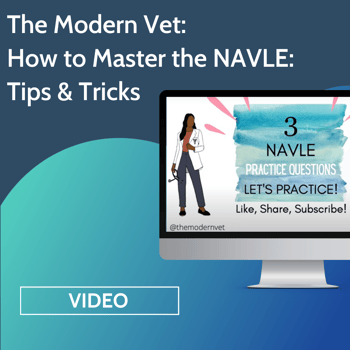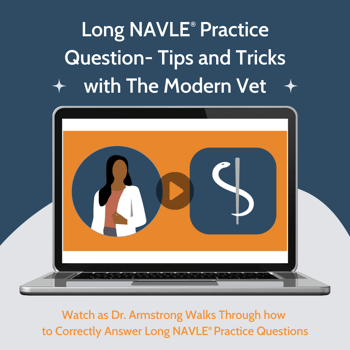Watch an enlightening webinar hosted by Dr. Amanda, who not only recently graduated but also passed the NAVLE with flying colors! She’s here to share her invaluable tips, resources, and study techniques that helped her succeed the first time around.
Why Watch?
1. Personal Experience: Dr. Amanda will share her journey and insights, giving you a first-hand look at what to expect and how to prepare.
2. Study Strategies: Discover tried and tested methods that make studying efficient and effective.
3. Question Breakdown: Get a closer look at how NAVLE questions are structured and the best ways to approach them.
4. Resource Recommendations: Don’t get lost in the sea of study materials. Dr. Amanda will share her top picks to streamline your revision.
5. Q&A Session: Have specific queries or concerns? Dr. Amanda will be answering your burning questions live.




